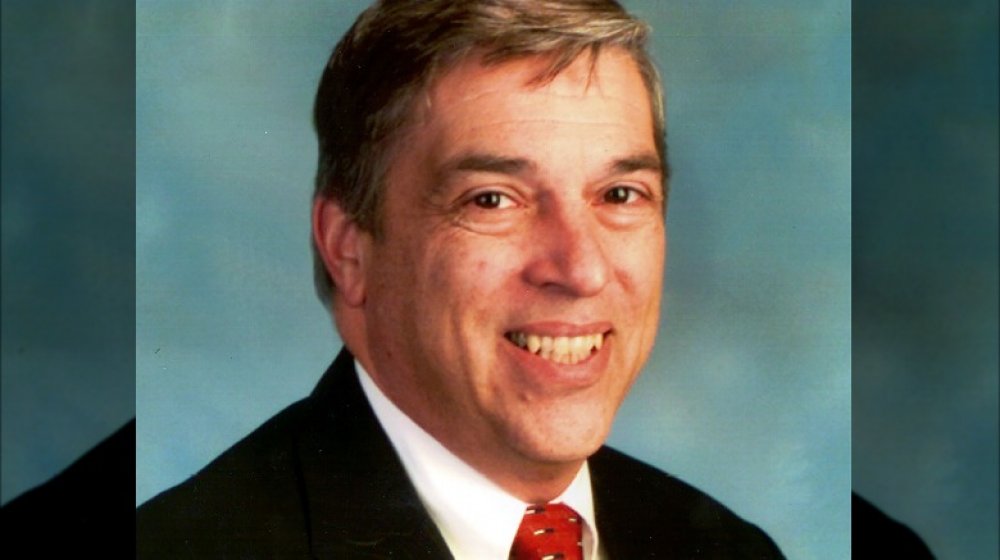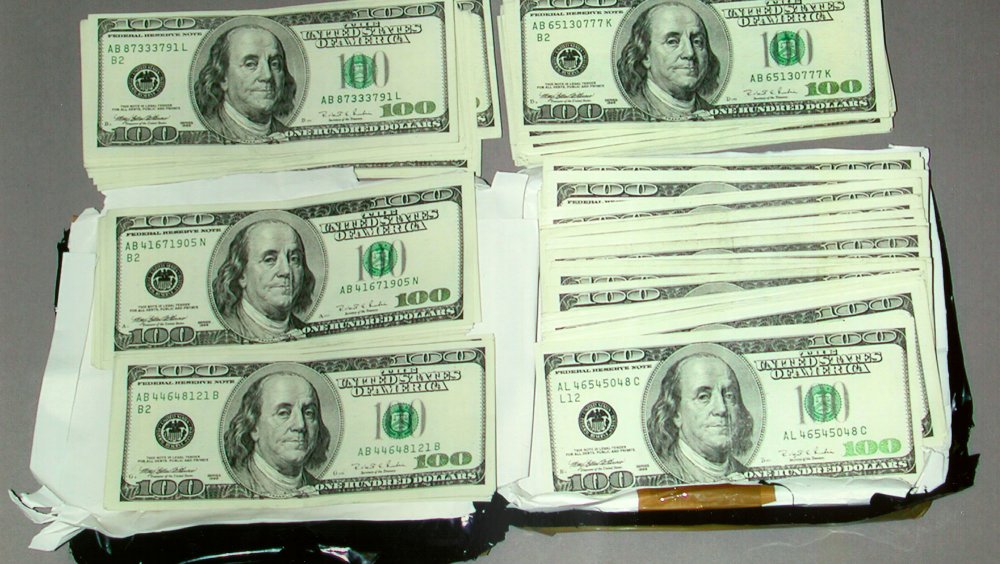The Truth About The FBI Agent Who Sold Secrets To Russia
Robert Hanssen's fellow FBI agents dubbed him "the mortician" because his trademark dark suits matched his gloomy demeanor, according to Newsweek. In a 2002 review of David A. Vise's book, The Bureau and the Mole, Linda Rothstein says psychiatrists described Hanssen's personality as "fractured." Perhaps it reflected his broken childhood. Relatives alleged that his father, a Chicago cop with political ties, used to hold Hanssen in the air by the ankle or twirl him around until he got sick. His father bullied and berated him, telling him to "be a man." The boy became withdrawn and remained isolated for hours at a time in his room, relatives said.
Hanssen grew from a psychologically scarred child into an aloof and sanctimonious man. He deemed his FBI colleagues "beneath him." He joined the Catholic sect Opus Dei and devoutly preached against Communists. But another facet of Hanssen belied his righteous facade. ThoughtCo notes that he had "an obsession with pornography." Meanwhile, his professed hatred of Communism was bribed by his inner capitalist as he sold highly classified information to Soviet spies and later to Russian agents. The Crime Museum estimates that Hanssen made more than $1.4 million in diamonds and cash for betraying his country. He also cost multiple people their lives.
Crime doesn't pay, but spying does
As the Crime Museum describes, Robert Hanssen started his career in law enforcement by joining the Chicago PD in 1972 as an internal affairs forensic account. After three years he became a cop, officially following in his father's footsteps. Maybe that was his greatest misstep. ThoughtCo writes that some investigators attributed his betrayal to his deep-seated anger toward his abusive and disapproving father.
In 1976, Hanssen jumped ship to the FBI, where he would look into diplomats suspected of espionage after relocating to New York City in 1978. His targets often belonged to the KGB, and in 1979, he volunteered to spy for them. By 1985, he ascended to the level of KGB agent. Some of the secrets he sold were invaluable. For instance, since 1977, the U.S. had been constructing an underground tunnel to monitor the Soviet Union embassy in D.C. Hanssen relayed the details to the Soviets for $55,000, and the secret surveillance efforts were thwarted. He ratted out Russian double agents, who were subsequently executed for selling secrets to the United States.
A turncoat turns the tables
The first person to catch Robert Hanssen red-handed was his wife, Vivian. As detailed by Timeline and ThoughtCo, around 1979 or 1980, Vivian spied him stashing documents in their basement. He claimed to be toying with the Soviets by selling bad intel, but Vivian forced him to see a priest and confess his sins. The priest told him to donate his ill-gotten profits to charity, so he gave it to an organization linked with Mother Theresa. Hanssen refrained from spying for years, but couldn't resist scratching his treacherous itch.
After the Soviet Union collapsed, Hanssen laid low again, for fears that ex-KGB agents would spill the beans. But in 1999, he began selling secrets once more, putting him ever more at risk of blowing his cover. Over the years, he tried to hack into FBI databases and was seen with suspicious stacks of cash, according to the Crime Museum. But he managed to elude suspicious with his doggedly anti-communist rhetoric and and holier-than-thou attitude. When he finally came under investigation, he pointed the finger at CIA operative Brian Kelley, throwing the latter's life into disarray, per Newsweek. Eventually, a former KGB agent did sell incriminating files about Hanssen's activities to the U.S. government. Robert Hanssen, the FBI's Benedict Arnold, confessed to treason in 2001 to avoid the death penalty and was sentenced to 15 consecutive life sentences.


